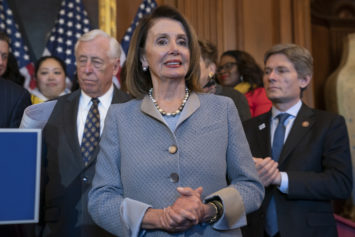The state of California and the Trump administration will square off Tuesday before a U.S. judge who will decide whether to block new rules allowing more employers to opt out of birth control coverage for women.
U.S. District Judge Haywood Gilliam was not expected to issue an immediate ruling on the request by California, which says the rules could result in millions of women in the state losing no-cost contraception services.
President Barack Obama’s health care law required most companies to cover birth control at no additional cost, though it included exemptions for religious organizations. The new policy by President Donald Trump’s administration marked another step in rolling back Obamacare.
Attorneys for the Trump administration said the rules are about “protecting a narrow class of sincere religious and moral objectors from being forced to facilitate practices that conflict with their beliefs.”
“This case is about religious liberty and freedom of conscience,” they wrote in a court filing.
Washington state, Massachusetts and Pennsylvania also have sued the Trump administration over the rules. The California attorney general’s office says Gilliam, whom Obama nominated to the federal court in 2014, is the first judge to hold a hearing to determine whether to block the rules while the case moves through the courts.
Delaware, Maryland, New York and Virginia joined California in its motion.
The U.S. Department of Health and Human Services issued the new policy on contraception in October. It allows more categories of employers, including publicly traded companies, to opt out of providing no-cost birth control to women by claiming religious or moral objections.
California’s lawsuit says the new rules violate the U.S. Constitution by overvaluing religious beliefs and discriminating against women. It says the Trump administration also violated federal law by acting without allowing for public comment or providing a proper legal or factual basis for the change.
The administration rejected those arguments, saying that the rules relieve a burden on religious practice, draw distinctions on the basis of sincerely held religious or moral beliefs and help resolve years of litigation.

